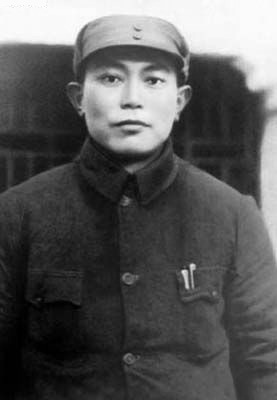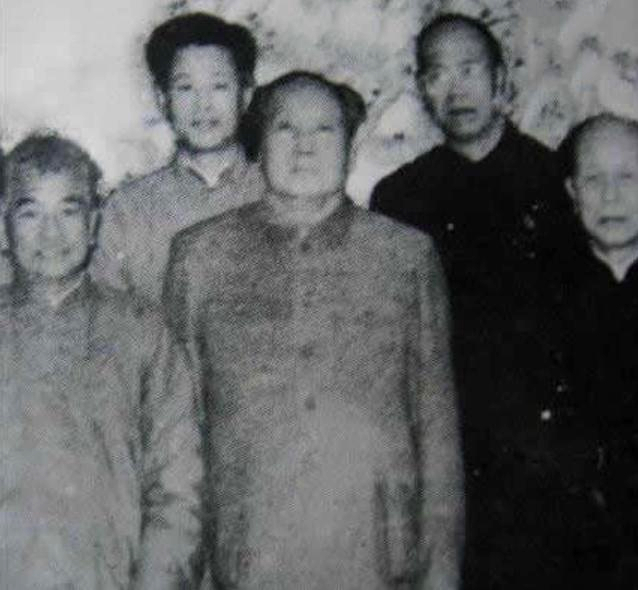|
6th National People's Congress
The 6th National People's Congress () was in session from 1983 to 1988. It held five sessions in this period. Elections to the Congress This new Congress was the first under the current 1982 Constitution, and the first to be elected under the rules of the 1979 Electoral Law of the PRC. In keeping with the provisions of the law, all deputies of the 6th NPC were elected indirectly from 1982 to February 1983 by the provincial-level legislatures of: * All 21 Provinces of China * All 5 Autonomous regions of China * The city legislatures of Beijing, Shanghai and Tianjin Elected state leaders In the 1st Plenary Session in 1983, the Congress elected the state leaders: *President of the People's Republic of China: Li Xiannian *Chairman of the Standing Committee of the National People's Congress: Peng Zhen *Premier of the State Council: Zhao Ziyang *Chairman of the Central Military Commission: Deng Xiaoping *President of the Supreme People's Court: Zheng Tianxiang Zheng Tianxiang ( ... [...More Info...] [...Related Items...] OR: [Wikipedia] [Google] [Baidu] |
National People's Congress
The National People's Congress of the People's Republic of China (NPC; ), or simply the National People's Congress, is constitutionally the supreme state authority and the national legislature of the People's Republic of China. With 2,980 members in 2018, it is the largest legislative body in the world. The National People's Congress meets in full session for roughly two weeks each year and votes on important pieces of legislation and personnel assignments among other things, and due to the temporary nature of the plenary sessions, most of NPC's power is delegated to the Standing Committee of the National People's Congress (NPCSC), which consists of about 170 legislators and meets in continuous bi-monthly sessions, when its parent NPC is not in session. As China is an authoritarian state, the NPC has been characterized as a rubber stamp for the Chinese Communist Party (CCP) or as only being able to affect issues of low sensitivity and salience to the Chinese regime. M ... [...More Info...] [...Related Items...] OR: [Wikipedia] [Google] [Baidu] |
Hu Yaobang
Hu Yaobang (; 20 November 1915 – 15 April 1989) was a high-ranking official of the People's Republic of China. He held the top office of the Chinese Communist Party (CCP) from 1981 to 1987, first as Chairman from 1981 to 1982, then as General Secretary from 1982 to 1987. Hu joined the CCP in the 1930s, and rose to prominence as a comrade of Deng Xiaoping. During the Cultural Revolution (1966–1976), Hu was purged, recalled, and purged again by Mao Zedong. After Deng rose to power, following the death of Mao Zedong, Hu played a role in the "Boluan Fanzheng" program. Throughout the 1980s, Hu pursued a series of economic and political reforms under the direction of Deng. Hu's political and economic reforms made him the enemy of several powerful Party elders, who opposed free market reforms and Hu's reforms of China's government. When widespread student protests occurred across China in 1987, Hu's political opponents blamed Hu for the disruptions, claiming that Hu's "laxness" ... [...More Info...] [...Related Items...] OR: [Wikipedia] [Google] [Baidu] |
List Of Political Parties In China
The People's Republic of China is a one-party state ruled by the Chinese Communist Party (CCP). Despite this, eight subservient political parties officially exist. Under the one country, two systems principle, the special administrative regions of Hong Kong and Macau, which were previously colonies of European powers, operate under a different political system to the rest of China. Currently, both Hong Kong and Macau possess multi-party systems that were introduced just before the handover of the territories to China. Minor parties While only the CCP holds effective power at the national level, there are officially eight minor parties that exist alongside the CCP. These minor parties are officially termed the "Democratic Parties" (). Founded prior to the proclamation of the People's Republic of China, these parties must accept the "leading role" of the CCP as a condition of their continued existence. According to Human Rights Watch, these parties "play an advisory rather than ... [...More Info...] [...Related Items...] OR: [Wikipedia] [Google] [Baidu] |
Chairman Of The Standing Committee Of The National People's Congress
The chairman of the Standing Committee of the National People's Congress is the presiding officer of the Standing Committee of the National People's Congress (NPCSC), which is the permanent body of the National People's Congress, highest organ of state power and top legislative body in the People's Republic of China (PRC). The chairman presides over the work of the NPCSC and convenes and presides over its meetings. The chairman is assisted by the vice chairpersons and secretary-general of the NPCSC. A vice chairperson may be delegated to exercise some of the chairman's powers by the chairman. In the case that the chairman becomes incapacitated, NPCSC temporarily elects one of the vice chairpersons until the chairman is able to resume their work or a new chairman is elected by the NPC. The position holds reserve constitutional powers under the 1982 revision of the Constitution of the People's Republic of China. As stipulated in Article 84 of the Constitution, should both the ... [...More Info...] [...Related Items...] OR: [Wikipedia] [Google] [Baidu] |
Ye Jianying
Ye Jianying (; 28 April 1897 – 22 October 1986) was a Chinese Communist revolutionary leader and politician, one of the founding Ten Marshals of the People's Republic of China. He was the top military leader in the 1976 coup that overthrew the Gang of Four and ended the Cultural Revolution, and was the key supporter of Deng Xiaoping in his power struggle with Hua Guofeng. After Deng ascended power, Ye served as China's head of state as Chairman of the Standing Committee of the National People's Congress from 1978 to 1983. Life Born Ye Yiwei () into a wealthy Christian Hakka merchant family in an old rural village at Jiaying county (modern-day renamed as Meixian District), his courtesy name was Cangbai () and most of Ye Jianying's siblings died before being adults due to severe illness. After graduation from the Yunnan Military Academy in 1919, he joined the Kuomintang (KMT). He taught at the Whampoa Military Academy, and in 1927 joined the Communist Party. That year, h ... [...More Info...] [...Related Items...] OR: [Wikipedia] [Google] [Baidu] |
Peng Zhen
Peng Zhen (pronounced ; October 12, 1902 – April 26, 1997) was a leading member of the Chinese Communist Party. He led the party organization in Beijing following the victory of the Communists in the Chinese Civil War in 1949, but was purged during the Cultural Revolution for opposing Mao's views on the role of literature in relation to the state. He was rehabilitated under Deng Xiaoping in 1982 along with other 'wrongly accused' officials, and became the inaugural head of the Central Political and Legal Affairs Commission. Biography Born in Houma, Shanxi province, Peng was originally named Fu Maogong (傅懋恭). He joined the Chinese Communist Party (CCP) in 1923 as a founding member of the Shanxi Province CCP. Arrested in 1929, he continued underground political activities while imprisoned. He was released from prison in 1935 and began organizing a resistance movement against the invading Japanese forces. Around the same time, he was appointed the Organization Depa ... [...More Info...] [...Related Items...] OR: [Wikipedia] [Google] [Baidu] |
Provinces Of China
The provincial level administrative divisions () are the highest-level administrative divisions of China. There are 34 such divisions claimed by the People's Republic of China, classified as 23 provinces (), five autonomous regions, four municipalities and two special administrative regions. The political status of Taiwan Province along with a small fraction of Fujian Province remain in dispute; those are under separate rule by the Republic of China, which is usually referred to as "Taiwan". Every province on Mainland China (including the island province of Hainan) has a Chinese Communist Party (CCP) provincial committee (), headed by a secretary (). The Committee Secretary is effectively in charge of the province, rather than the governor of the provincial government. The same arrangement exists for the autonomous regions and municipalities. Types of provincial level divisions Province The government of each standard province () is nominally led by a provincial committe ... [...More Info...] [...Related Items...] OR: [Wikipedia] [Google] [Baidu] |
Autonomous Regions Of China
The autonomous regions () are the highest-level administrative divisions of China. Like Chinese provinces, an autonomous region has its own local government, but under Chinese law, an autonomous region has more legislative rights, such as the right to "formulate self-government regulations and other separate regulations." An autonomous region is the highest level of minority autonomous entity in China, which has a comparably higher population of a particular minority ethnic group. The autonomous regions are the creations of the People's Republic of China (PRC), as they are not recognized by the Republic of China (ROC) based in Taiwan, which previously ruled Mainland China before the PRC's establishment in 1949. History Established in 1947, the Inner Mongolia Autonomous Region became the first autonomous region in the Chinese liberated zone. Xinjiang was made autonomous in 1955 after the PRC's founding, and Guangxi and Ningxia were made autonomous in 1958. Tibet was placed ... [...More Info...] [...Related Items...] OR: [Wikipedia] [Google] [Baidu] |
Direct-administered Municipalities Of China
A direct-administrated municipality (), commonly known as municipality, is the highest level of classification for cities used by the People's Republic of China. These cities have the same rank as provinces and form part of the first tier of administrative divisions of China. A municipality is a "city" () with "provincial" () power under a unified jurisdiction. As such, it is simultaneously a city and a province in its own right. A municipality is often not a "city" in the usual sense of the term (i.e. a large continuous urban settlement), but instead an administrative unit comprising, typically, a main central urban area (a city in the usual sense, usually with the same name as the municipality) and its much larger surrounding rural area containing many smaller cities (districts and subdistricts), towns and villages. The larger municipality spans over . To distinguish a "municipality" from its actual urban area (the traditional meaning of the word ''city''), the term "urban ar ... [...More Info...] [...Related Items...] OR: [Wikipedia] [Google] [Baidu] |
Li Xiannian
Li Xiannian (pronounced ; 23 June 1909 – 21 June 1992) was a Chinese Communist military and political leader, President of the People's Republic of China (''de jure'' head of state) from 1983 to 1988 under Paramount Leader Deng Xiaoping and then Chairman of the Chinese People's Political Consultative Conference from 1988 until his death. He was a full member of the Politburo from 1956 to 1987, and of its Standing Committee from 1977 to 1987.''Li Xiannian (1909–1992)'', in Christopher R. Lew, Edwin Pak-wah Leung: ''Historical Dictionary of the Chinese Civil War'', p.p. 120-121, Scarecrow Press, 2013Holley, David"Li Xiannian, Ex-President of China, Dies at 83: Old Guard: He was one of a ruling clique of ‘8 elders’ who ordered the army to repress the pro-democracy movement in 1989".''Los Angeles Times'', 23 June 1992. Li worked as an apprentice carpenter in his teenage years to support his family. He joined the Communist Party in December 1927 and became a soldier in th ... [...More Info...] [...Related Items...] OR: [Wikipedia] [Google] [Baidu] |
Zhao Ziyang
Zhao Ziyang ( zh, 赵紫阳; pronounced , 17 October 1919 – 17 January 2005) was a Chinese politician. He was the third premier of the People's Republic of China from 1980 to 1987, vice chairman of the Chinese Communist Party (CCP) from 1981 to 1982, and CCP general secretary from 1987 to 1989. He was in charge of the political reforms in China from 1986, but lost power in connection with the reformative neoauthoritarianism current and his support of the 1989 Tiananmen Square protests. Zhao joined the Chinese Communist Party (CCP) in February 1938. During the Second Sino-Japanese War, he served as the chief officer of CCP Hua County Committee, Director of the Organization Department of the CCP Yubei prefecture Party Committee, Secretary of the CCP Hebei-Shandong-Henan Border Region Prefecture Party Committee and Political Commissar of the 4th Military Division of the Hebei-Shandong-Henan Military Region. During the Chinese Civil War of 1945-1949, Zhao served as the Deputy ... [...More Info...] [...Related Items...] OR: [Wikipedia] [Google] [Baidu] |
Deng Xiaoping
Deng Xiaoping (22 August 1904 – 19 February 1997) was a Chinese revolutionary leader, military commander and statesman who served as the paramount leader of the People's Republic of China (PRC) from December 1978 to November 1989. After CCP chairman Mao Zedong's death in 1976, Deng gradually rose to supreme power and led China through a series of far-reaching market-economy reforms earning him the reputation as the "Architect of Modern China". He contributed to China becoming the world's second largest economy by GDP nominal in 2010. Born in the province of Sichuan in the Qing dynasty, Deng studied and worked in France in the 1920s, where he became a follower of Marxism–Leninism and joined the Chinese Communist Party (CCP) in 1924. In early 1926, Deng travelled to Moscow to study Communist doctrines and became a political commissar for the Red Army upon returning to China. In late 1929, Deng led local Red Army uprisings in Guangxi. In 1931, he was demoted within the ... [...More Info...] [...Related Items...] OR: [Wikipedia] [Google] [Baidu] |
.jpg)







.jpg)